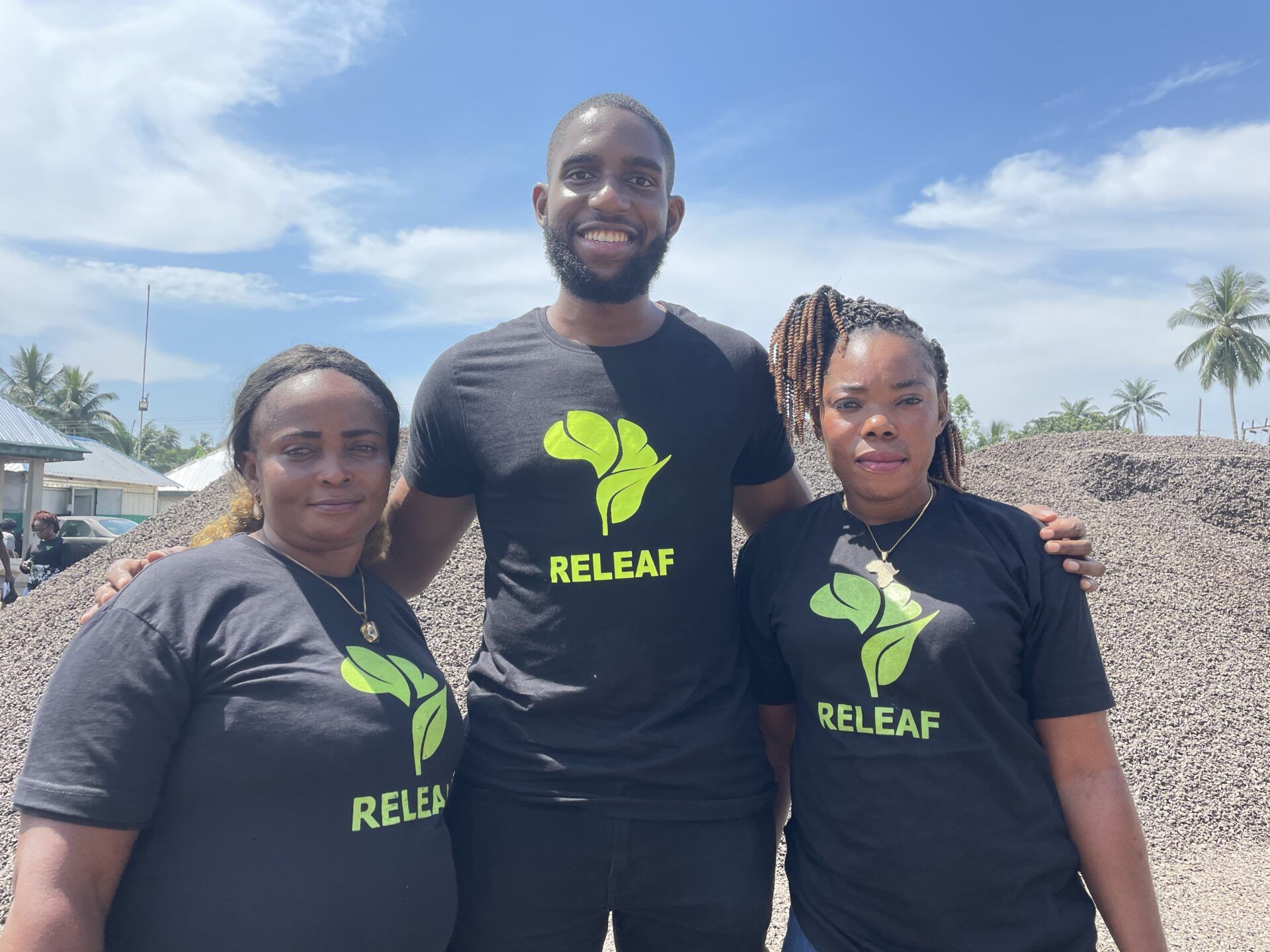Nigeria Agritech startup Releaf plans Expansion into more crops and African markets

Nigerian Agritech startup Releaf developing proprietary hardware and software solutions to the industrialization of food processing in Africa has announced plans to expand into more crops and additional West African markets.
Releaf was founded in 2017 by the trio of Ikenna Nzewi, Uzo Ayogu, and Isaiah Udotong. The startup which started operations in the oil palm space in 2019 was part of the Y Combinator accelerator program in Silicon Valley in 2017 and was able to deploy its proprietary technology in January 2021.
Ikenna Nzewi, co-founder of Releaf speaking on the development said it is bringing efficiency to food production and also bridging the gap between small-scale farmers and manufacturing companies.
“Our hardware increases the availability and quality of raw materials for food factories and our sourcing software connects us directly to over 2,000 smallholder farmers.
“Starting in Nigeria’s oil palm sector, we are creating technology that will make farmers and food factories in Africa more efficient and profitable.
“With that in mind, we act as a bridge between smallholder farmers and food manufacturing companies, providing working capital for farmers to access more palm kernel and equipment, and processing the raw material into factory-grade inputs for vegetable oil factories.
“We also work with farmers to improve their monthly income by up to 5x and grow their wealth by enabling them to spend their time on the most profitable aspects of palm production and financing increased local processing capacity,” said Nwezi
Releaf has a network of more than 2,000 smallholder farmers, with around 600 consistently providing output for offtake. Releaf plans to explore further for opportunities to penetrate the market. It plans to expand across West Africa in oil palm and into additional crops for a continental footprint in due course, building a network of decentralized factories that will power the industrialization of food processing.
On how the startup makes its profit, Nwezi said:
“After acquiring palm nuts from our network of smallholders, we process them into factory-grade inputs for vegetable oil manufacturers. These factories typically need to buy in large quantities and high quality so our quality assurance and volume mean that we can secure significant orders from manufactures that go on to produce a vegetable oil that consumers buy. We’ve experienced double-digit growth every month since commencing operations in January and expect to maintain this growth indefinitely”.
“We have also had to navigate challenges around importation and long lead times for some of the machines we have to order from outside Nigeria. Our work involves a lot of research and development; thus it can often be difficult to ascertain whether or not these machines will work as we would like them to until we have them on the ground.
“Given that these machines often take up to six months to arrive, we then have to decide if we should pre-empt any issues by buying two different versions from different vendors or save money by buying one machine at a time, hoping that it works as you want it to. At the same time, we need to make sure we consistently make payroll and make sure that finances are responsibly managed. This is a challenge we have had to navigate and work out an effective solution for managing regularly”.
